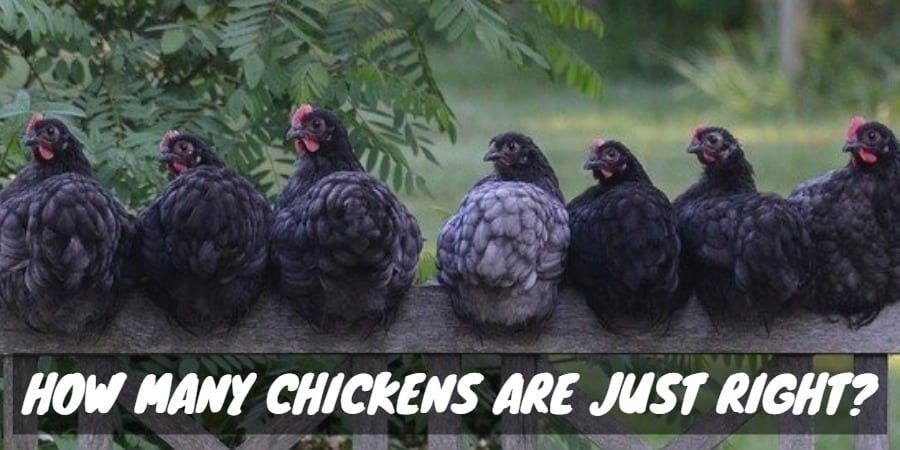We already know what our domestic chickens eat: just about anything!
The chicken feed from the farm supply store, berries from the garden, scraps from the dinner table… to a chicken, everything is a potential meal, and it’s at least worth having a taste!
But what if we weren’t around to do their shopping and manage their portions? If your flock had to fend for itself, what would its members dine on?
Let’s find out what chickens naturally eat — maybe you’ll get some ideas for treats in the process!
The Natural Diet of Wild Chickens

Believe it or not, there are truly wild chickens out there. They’re known as junglefowl, and one species, in particular, is eerily similar to domestic chickens: the red junglefowl, or Gallus gallus.
Just how similar are they? Well, the domestic chicken is actually a subspecies of the red junglefowl, Gallus gallus domesticus.
In fact, the red junglefowl is the direct ancestor of the domestic chicken! They share nearly 80% of their DNA and are uncannily similar in looks, behavior, and diet.
The latter is key to understanding what chickens eat naturally. Tastes run in the family, after all!
Red junglefowl is foragers who will try pretty much anything at least once. Their favorite food, however, is fruit.
Bamboo forests, fruit plantations, orchards, and other fruit-rich areas are the preferred habitats of the red junglefowl. They eat fruits and seeds that fall to the ground, but when they’ve exhausted that supply, they’re happy to flutter up into the trees to get more.
Other plants, leaves, tubers, and roots are on the menu as well, as are various bugs and small reptiles. Spiders, termites, beetles, ants, worms, and geckos are great sources of protein for junglefowl.
Adult junglefowl prefers plant matter, but chicks and juveniles eat mostly bugs and other animals. They favor earthworms and insect larvae, likely because these creatures are terrestrial and easy to capture.
Feeding Your Chickens Their Natural Diet
Your backyard is a far cry from Southeast Asia, home of the red junglefowl, but your chickens’ natural diet remains the same: mostly fruits and plants, with some insects for protein.
If you’ve ever wondered what your chickens would eat if they became feral, take a look at this menu straight from Mother Nature herself! Incorporating these foods into your chickens’ diet will satisfy their natural cravings and provide them with plenty of nutrition.
Bugs and Insects: Natural Protein
For young chickens, protein is everything. They need it to grow up big and strong; without it, they’ll experience weakness, stunted growth and possibly death.
But adult chickens also need their protein to stay energized. And in the wild, the best way to get it is by eating bugs.
Whether it’s pulling earthworms out of the ground, sneaking up on unsuspecting grasshoppers or terrorizing termite mounds, chickens eating bugs is about as natural as it gets.
That’s why, even if you give them plenty of food, you’ll still see them pecking at the ground and chasing after any insects they see. Encourage them to do so — it’s good for them to keep up their foraging practice.
And if you’re so inclined, offering your chickens live crickets every once in a while is a great way to treat them while maintaining their natural diet. You can buy live crickets from most pet stores as reptile food, and your chickens will love them!
Fruits and Veggies: Crisp, Juicy, All-Natural

In the wild, your chickens would spend much of their day foraging for berries and other fruits. Though they don’t need to do that anymore, they still enjoy it — it takes them back to their roots and gives them a tasty reward for their trouble!
We may not have access to the jungle berries that the red junglefowl of Southeast Asia subsist on, but we have a few alternatives that come pretty close.
Blueberries, strawberries, apples, and bananas are excellent natural foods for chickens. Toss some onto the ground and let your chickens put their foraging talents to good use.
And to give your chickens the experience of eating leaves from wild plants, try offering them some potted vegetables or plant them a special chicken garden. Lettuce, zucchini, and carrots are time-tested favorites.
Seeds: Tiny Treats for Natural Diets
Junglefowl loves bamboo forests because of its abundance of seeds and shoots. And that love has been passed on to the domestic chicken.
To make your chickens’ day, toss some bamboo seeds into their pen and watch them go crazy. The tiny seeds provide hours of entertainment, and they’re a chicken delicacy to boot.
If you can’t find bamboo seeds, there are plenty of other seeds that can fulfill your chickens’ need to forage for natural treats. Poppy seeds, black sunflower seeds, and pumpkin seeds are all wonderful options.




